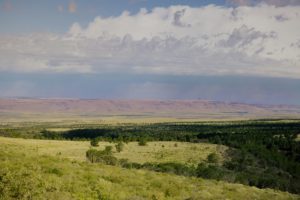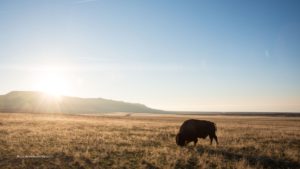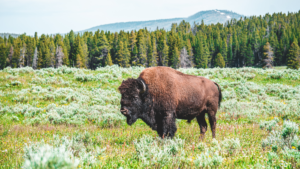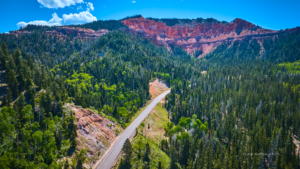For Immediate Release, May 28, 2020
Contacts:
Kelly Fuller, Western Watersheds Project, (928) 322-8449, kfuller@westernwatersheds.org
Patrick Donnelly, Center for Biological Diversity, (702) 483-0449, pdonnelly@biologicaldiversity.org
RENO, Nev.― Conservation groups are appealing the Bureau of Land Management’s approval of Western Oil Exploration’s Scott Federal oil wells in designated greater sage-grouse habitat near three sage-grouse leks in the Ely, Nev. area. The agency’s decision violates its own sage-grouse plan amendments and puts local populations of the bird at risk.
“BLM illegally approved the Scott Federal oil wells near three sage-grouse leks without following the Nevada sage grouse plan, showing once again why greater sage-grouse must be protected under the Endangered Species Act,” said Kelly Fuller, energy and mining campaign director at Western Watersheds Project. “BLM can’t be counted on to enforce its own sage-grouse plans, especially in Nevada.”
On April 17 the BLM’s Bristlecone Field Office approved drilling permits for two new oil wells, reserve pits, water wells and road widening. On May 21 Western Watersheds Project and the Center for Biological Diversity formally requested that Nevada BLM State Director Jon Raby review and reverse the approval of the Scott Federal oil wells.
“The Trump administration has been recklessly pursuing fossil fuel extraction at the expense of Nevada’s wildlife and climate,” said Patrick Donnelly, Nevada state director at the Center. “The BLM is flouting the law so Trump’s campaign donors can continue to reap oil-soaked profits from our public lands.”
The BLM’s approval of the Scott Federal oil wells fails to meet the requirements of the 2015 Nevada sage-grouse plan by:
- Allowing two reserve pits in greater sage-grouse habitat. Reserve pits are notorious for killing birds and other wildlife. Building reserve pits at the Scott Federal wells will put greater sage-grouse and other birds at risk of poisoning or drowning.
- Granting permission for the project to go into production without remote monitoring of project facilities. Remote monitoring decreases disturbance of greater sage-grouse, which helps their populations to recover.
- Allowing construction to begin without first measuring background noise levels to assess the effects of additional construction noise and ensure that noise levels don’t harm the sage-grouse.
“Sage-grouse around Ely are in real trouble,” said Fuller. “Four years ago, their population dropped so much that BLM was required by Nevada’s sage-grouse plan to take steps to help them. Oil and gas exploration was identified as one of the causes of the grouse population drop, yet BLM Nevada is still approving oil and gas wells in grouse habitat and letting oil companies off the hook by not holding them to all of the grouse plan’s requirements.”
Federal regulations require Raby to make a decision on the conservation groups’ request within 10 business days of receiving the request or within 10 business days following an oral presentation to the state director about the request. As of May 28, Raby’s office had not acknowledged receiving the review request from the conservation groups. [UPDATE: About an hour after this news release was sent to reporters, BLM’s Nevada State Office acknowledged receiving the conservation groups’ request for state director review.]
###
Western Watersheds Project protects and restores western watersheds and wildlife through education, public policy initiatives, and legal advocacy.
The Center for Biological Diversity is a national, nonprofit conservation organization with more than 1.7 million members and online activists dedicated to the protection of endangered species and wild places.
—






